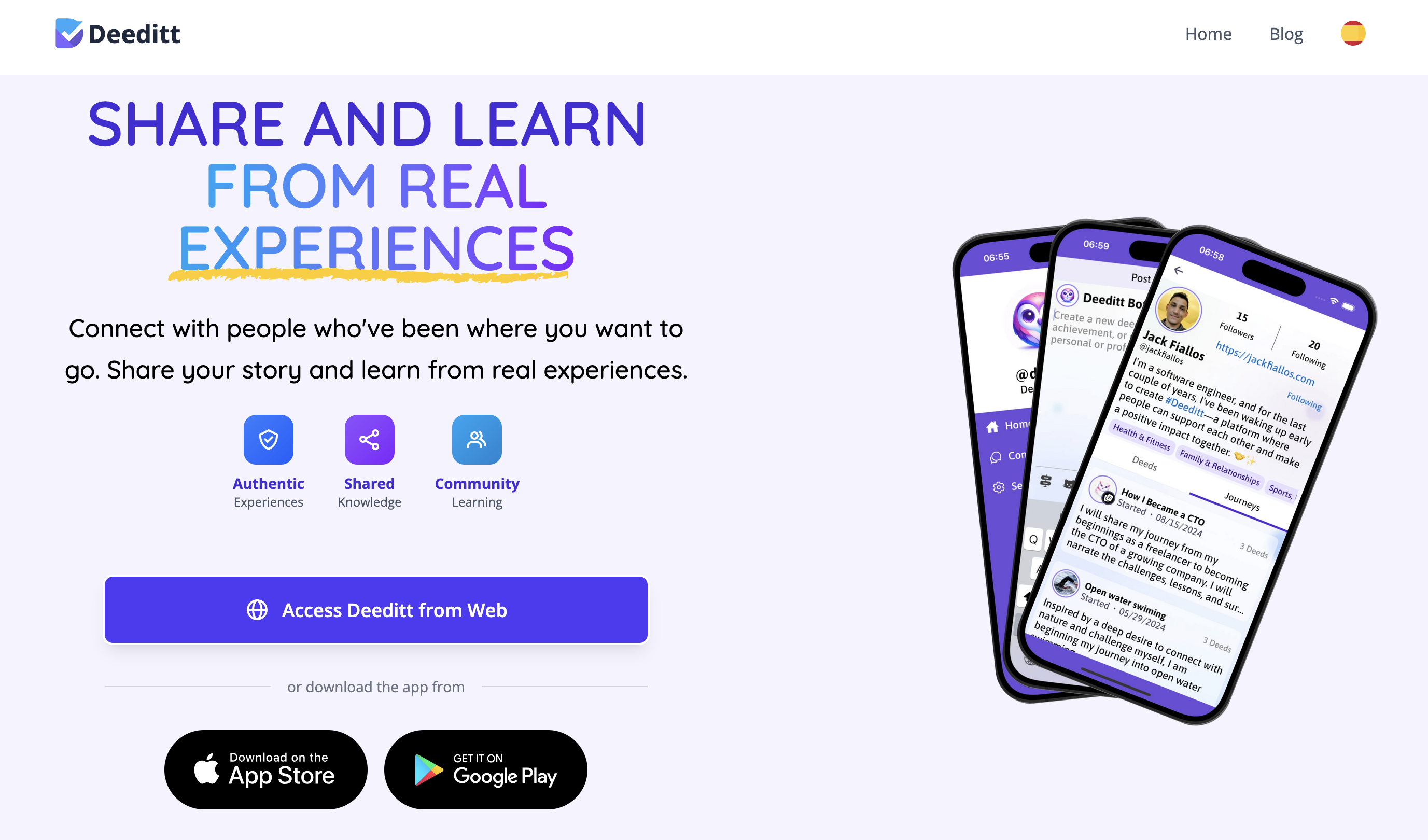Deeditt
Making an Attempt Public Is Also an Act of Generosity
Creating something new always involves uncertainty, but choosing to do it publicly—to show the process, the doubts, the clumsy steps, and the small advances—is much braver and more valuable than it may seem.
Not everyone would do it. Not because they can’t, but because exposing yourself without re...…
in
Social Impact
The Next Chapter in Deeditt: A Space to Share Without Masks
Today marks a new chapter for Deeditt. The web version is now live, accessible from any browser—no installations, no friction. But this is more than a technical upgrade.
It’s a step toward a more honest, more human Internet.
A place where sharing doesn’t mean exposing yourself. Where you can spea...…
in
Social Impact
When You're Invisible: The Power of Documenting Your Journey
I'm building something. An idea, a community, a platform called Deeditt. But sometimes I feel like I'm the only one who sees it. As if the effort, time, and heart I've invested don't exist outside my mind. As if everything I'm doing is invisible.
And yet, I keep documenting it.
I don't do this o...…
in
Inspiration
Invisible Progress of an Entrepreneur
Five years ago, when I became a CTO, I never imagined how that title would become such a big part of who I am. I also didn't expect that one day I would decide to leave it behind. Yet here I am, on a journey that goes far beyond a simple career change: a personal, challenging, and unpredictable jour...…
in
Personal Growth
The Legacy of Shared Learning
I remember perfectly how, a few years ago, I used to write frequently about the challenges I faced at work. I enjoyed sharing how I solved problems, what strategies I applied, and what lessons I learned. It was my way of connecting with others, of contributing something to those who might be dealing...…
in
Personal Growth
When Security Becomes a Burden and Uncertainty Opens the Door
Life often places us at a crossroads where we must choose between the known and the unknown. It is in these moments that we face the internal dilemma of clinging to what is secure, even if it is draining, or venturing into the unknown with the hope of finding something more meaningful. This process...…
in
Inspiration
Featured
Popular Tags
Motivation
Learning
featured
Inspiration
Self-Improvement
Knowledge
Discovery
Happiness
Positive Actions
Balance
Social Media
Growth
Authenticity
Connection
Redefinition
Challenges
Truth
Digital Age
Positive Attitude
Community
Success
Critique
Positive Content
Mindset
Sharing
Empathy
Ripple Effect
Patience
Change
Goals










